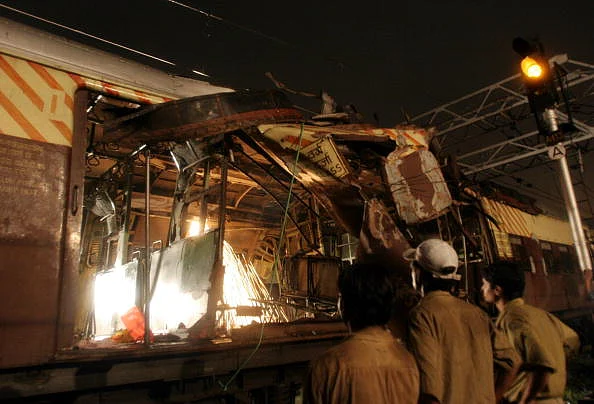The Maharashtra government has approached the Supreme Court, challenging the Bombay High Court’s decision to acquit all 12 individuals previously convicted in the 2006 Mumbai train blasts case. The state has argued that the High Court erred in dismissing critical evidence, particularly the recovery of RDX from one of the accused, citing what the state termed a "hyper-technical ground" — the absence of a lac seal on the explosives.
The appeal was filed just a day after the High Court cleared the accused, stating the prosecution had failed to establish their involvement and found it “hard to believe” they had committed the crime, according to PTI.
Earlier in the day, Solicitor General Tushar Mehta sought an urgent hearing before a bench headed by Chief Justice B R Gavai. The matter is scheduled to be heard on July 24.
In its plea, the state government raised multiple objections to the acquittal, asserting that due process under Section 23(2) of the Maharashtra Control of Organised Crime Act (MCOCA) had been followed, with sanctions issued by senior officials, including prosecution witness (PW) no. 185 Anami Roy.
The plea strongly opposed the High Court’s ruling on the recovery of 500 grams of RDX from one accused, noting that the explosive was not sealed with a lac seal due to its inflammable nature and that the seizure was properly sanctioned and documented.
"That, the Hon'ble High Court has disbelieved the recovery of 500 gms of RDX from Accused No. 1 on a hyper-technical ground that the RDX which was seized was not sealed with a lac seal. It will be pertinent to note that the same was not sealed with a lac seal because RDX is an inflammable substance.”
“It is pertinent to note that the High Court records that the sanctioning authority for explosive substances has been examined by the prosecution. However, the Hon'ble High Court has not found any infirmities in the evidence of PW 26, who is the sanctioning authority under the Explosive Substances Act for seizure of RDX from Accused No. 1. Therefore, the High Court has erred in disbelieving the recovery of RDX from Accused No. 1,” the plea states.
The petition also questioned the rejection of a confessional statement on the grounds that it lacked details such as the arrival date and background of Pakistani co-conspirators.
"The entire confessional statement has been disbelieved which is an unacceptable conclusion,” the plea said, asserting that such omissions did not undermine the broader confession.
Further, the plea challenges the High Court’s dismissal of evidence related to the recovery of detonators and explosive granules from another accused, arguing that such material cannot be easily planted and should not have been disregarded over procedural nuances.
The petition also criticizes the High Court for not addressing convictions under the Unlawful Activities (Prevention) Act (UAPA) and the Explosive Substances Act, claiming it overlooked important precedents and legal interpretations.
It countered the defence’s argument that the accused did not meet the MCOCA definition of "continuing unlawful activity," by citing Supreme Court rulings that uphold conspiracy and the scale of the attacks as qualifying factors.
Of the 12 originally convicted, five were sentenced to death and seven to life imprisonment by a special court. One of the death-row convicts died in 2021.
The blasts, which struck seven Mumbai local trains on the western line on July 11, 2006, claimed more than 180 lives and injured hundreds more.














